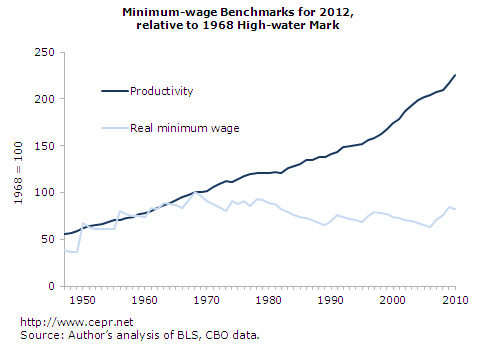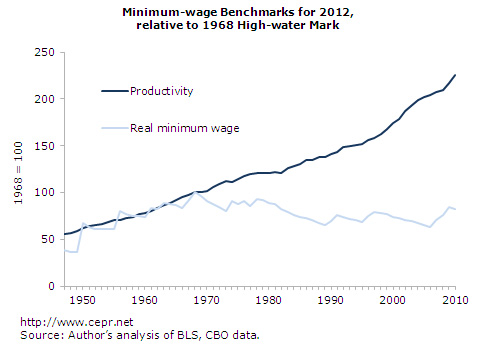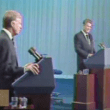After President Barack Obama called on Congress to raise the federal minimum wage from $7.25 an hour to $9, it fell on U.S. Senator Marco Rubio to make the conservative case against it. Alas, for a Republican Party trying to reinvent itself for a brave new 21st-century world, all he offered were the same old exhausted talking points.
“You can’t [create economic growth] by mandating it,” he told CBS This Morning the next day. “Minimum wage laws have never worked in terms of helping the middle class attain more prosperity. What works [is helping] the free-enterprise system to create an environment for the private sector to grow and create more good-paying jobs. Let’s have a debate about growth and what generates growth.”
Actually, let’s not.
The debate over supply-side economics is over. Republicans, conservatives and neoliberals lost. The Great Recession discredited that economic theory and voters finished it off. But like the Black Knight in Monty Python and the Holy Grail, loyal foot soldiers like Rubio continue to fight despite having their legs cut out from under them.

More importantly, Rubio is wrong. Minimum wage laws do help the middle class. They put upward pressure on all wages. Wage targets, moreover, were central to the postwar boom, along with higher taxes on the rich, and regulation of industry and infrastructure. Higher wages meant more money in more hands and a stronger economy. In other words, by “interfering” with the economy, the federal government set the stage for a Golden Age of high aggregate demand, the very thing missing from today’s struggling economy.
As for growth, there’s no shortage of it. Banks and corporations are sitting on mountains of cash and yet hiring minimally. Stocks, meanwhile, are posting their biggest gains ever. The problem is that prosperity isn’t widely shared. Raising the minimum wage may not solve that, but it is a good first step.
It’s also a step toward the debate we ought to be having, which is over wages, not deficits and entitlements. Wages haven’t kept pace with the cost of living — chiefly, healthcare, education and housing — for years. Americans have been forced to borrow against their homes, their biggest source of wealth. After housing values cratered, they couldn’t even do that, plus wages continued to stagnate despite historic gains in productivity.
Republicans often find themselves on the wrong side of history because they demonstrate little affinity for it. The government has always played a role in the economy. When it hasn’t, it was the result of policy and politics, not faceless economics.
But now the tide appears to be turning. A new Gallup poll shows 71 percent would like to see the minimum wage go up. The head of Costco would like it to be $10 a hour. Raising it would have no adverse effect on job growth, say economists who aren’t Ayn Rand disciples. One study even suggested the minimum wage could be over $20 an hour if businesses shared productivity gains.
From that viewpoint, $9 is a bargain.
(Image courtesy of the Center for Economic and Policy Research)
John Stoehr is the managing editor of The Washington Spectator.



